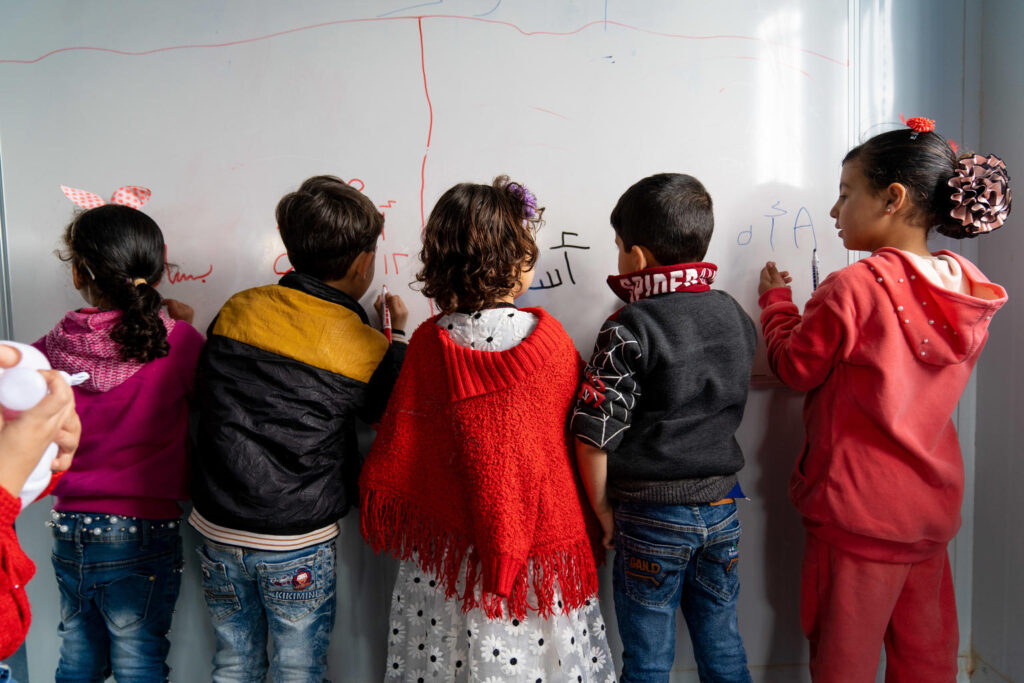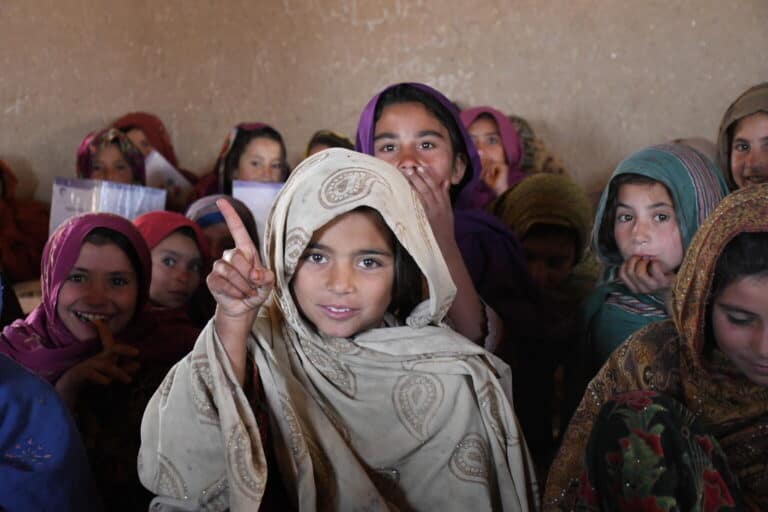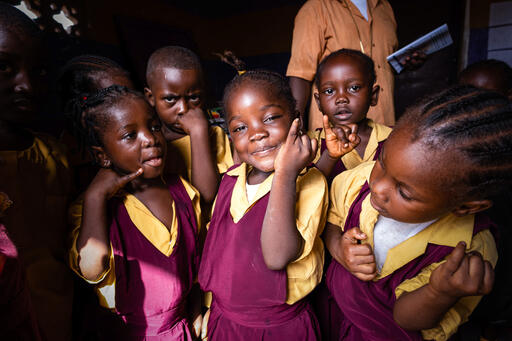UNICEF, IOM, UNHCR, OECD, countries and other partners join forces to protect children through the International Data Alliance on Children on the Move
The widespread lack of quality data on millions of displaced and migrant children is compounding the serious risks they face, a coalition of international organizations announced today in New York during the launch of the International Data Alliance on Children on the Move. The Alliance – led by UNICEF, IOM, UNHCR (the UN Refugee Agency) and OECD, and currently including about 30 members from government agencies, NGOs, civil society and other partners – aims to improve data and statistics on this vulnerable group of children to support evidence-based policymaking that protects and empowers them.
Improving the availability of data on migrants in vulnerable situations, including children, was one of the main themes discussed during the second International Forum on Migration Statistics in Cairo earlier this year.
“Tens of millions of children have migrated across borders or been forcibly displaced, but in so many cases, we don’t have the information needed to keep them safe,” said Mark Hereward, UNICEF Associate Director for Data and Analytics. “If we don’t know who they are, where they’ve come from or whether they’re alone, how can we ensure they are protected and get the support they need? Improving data quality, availability and analysis is essential to properly identifying and reaching these children.”
“Between 2014 and 2018 more than 1,825 children – an average of almost one every day – were reported dead or missing. Many more such incidents go unrecorded. This is a grim reminder that children are among the most vulnerable groups of migrants,” said Frank Laczko, Director of IOM’s GMDAC.
The work of the Alliance will also support implementation of the two Global Compacts on Migration and Refugees as well as the child migration relevant targets of the 2030 Agenda for Sustainable Development.
“Leaving no one behind is the central promise of the 2030 Agenda and its SDGs. We need more harmonised data, as a prerequisite for making sound policy decisions. This is the only way to show the extent of the challenges children on the move face and their vulnerability,” said Deputy Director General of Statistics Netherlands, Dr Bert Kroese.
Over the next two years, the Alliance will work to achieve three primary objectives:
- Support countries and regions to strengthen their capacities to collect, analyze and use data on migrant and refugee children.
- Produce an annual flagship report with data on migrant and refugee children to monitor global progress in improving data and highlight key knowledge gaps.
- Convene an annual conference and establish a global network to facilitate the exchange of local, national, regional and international good practices on data collection, analysis and dissemination to support data initiatives between and within countries.
The Alliance will also coordinate and work closely with other established groups and networks focusing on data in migration and displacement, including the UN Migration Network, the UN Expert Group on Migration Statistics (EGMS), the Expert Group on Refugee and IDP Statistics (EGRIS), and the Global Compact on Youth in Humanitarian Action.
The launch event for the Alliance was jointly organized by the Permanent Mission of the Kingdom of the Netherlands to the United Nations, Statistics Netherlands (CBS), the Permanent Mission of Sweden to the United Nations, Statistics Sweden (SCB), UNICEF, IOM, UNHCR and OECD. The Alliance remains open for countries, NGOs, civil society and academics to join.
Read more on the UNICEF Data website.
The United Nations International Children’s Fund (UNICEF), the International Organization for Migration (IOM), the United Nations High Commissioner for Refugees (UNHCR) and the Organization for Economic Co-operation and Development (OECD)form the joint secretariat of the International Data Alliance on Children on the Move.


